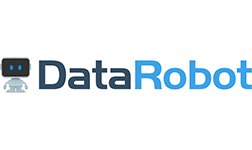
Data science notebooks are an important tool used by data science professionals for experimentation and collaboration. These interactive notebooks allow users to write and execute code for exploratory analysis, encouraging rapid experimentation through quick environment creation, interactive computation, and code snippets, all while providing a platform to visualize and share results.
DataRobot has jumped into the world of data science notebooks with the announcement of the availability of its new DataRobot Notebooks. Previewed at its AIX 2022 conference last June, the company says the notebooks are fully integrated within the DataRobot AI Cloud platform and enable data scientists to collaborate across code-first workflows with one-click access to embedded notebooks.
During a demonstration in the AIX 2022 keynote, Jillian Schwiep, director of product management for DataRobot, said: “In one click, I have access to code for every step, end-to-end, in a single DataRobot notebook. There is code to set up my environment and data, fit and score the full suite of DataRobot models, generate predictions in real time, and export those predictions to a location of my choosing, like Snowflake, an S3 bucket, or an app. I can then deploy this directly into DataRobot’s AI Cloud.”
 The company noted in a release that multiple challenges can emerge as the number of notebook users in a data science organization grows, including managing notebooks at scale and maintaining complex and costly dependencies and libraries.
The company noted in a release that multiple challenges can emerge as the number of notebook users in a data science organization grows, including managing notebooks at scale and maintaining complex and costly dependencies and libraries.
“We are entering a phase of AI governance where the collaboration and productivity gains of data science teams become increasingly important,” said Mike Leone, senior analyst at Enterprise Strategy Group. “With DataRobot Notebooks, the flexibility to develop in preferred environments, including open-source ML tooling or in the DataRobot AI platform, streamlines the code development experience and allows data scientists to better collaborate as a team in a unified environment.”
DataRobot says its notebooks streamline the code development experience for data science workflows with an emphasis on automation, reproducibility, scalability, and collaboration. The company lists the benefits as follows:
- Interoperability: DataRobot Notebooks is fully compatible and interoperable with the Jupyter Notebook standard, accelerating onboarding onto the DataRobot AI platform. DataRobot Notebooks come with pre-defined, pre-installed containerized environments that have frequently used open source machine learning libraries, including NumPy, Seaborn, scikit-learn, SciPy, and more.
- Native integration within DataRobot: DataRobot Notebooks is fully integrated with the entire DataRobot ecosystem, allowing data scientists to run their code directly on the platform with all the libraries and tools they need. With this deep integration, DataRobot Notebooks serves as a code-centric solution for users leveraging DataRobot automated machine learning and MLOps capabilities.
- Centralized management: DataRobot Notebooks is a unified environment with centralized governance and fine-grained access controls, so, data scientists can easily organize, collaborate, and share notebooks and related assets among individuals and teams.
- Enhanced features: Users can now write and execute custom code in cloud-based notebooks with access to private, scalable, and containerized computing environments. DataRobot Notebooks also provides version history, code snippets, code intelligence capabilities like code completion, credentials management, built-in visualizations, and more.
DataRobot posits that over 30% of data scientists collaborate on a team with 10 or more data science experts, each with their own preferred tools and languages. Additionally, other groups in the enterprise such as data analytics professionals, business analysts and IT workers also collaborate with data scientists and engineers. The company says its DataRobot Notebooks offer an interconnected environment that can provide the code-first experience desired by expert data scientists and machine learning engineers, along with the enterprise features needed for organization-wide communication, synergy, and scale.
DataRobot Notebooks join a crowded field of data science notebooks, including the popular Jupyter Notebooks, as well as notebooks from Deepnote, Anaconda, Databricks, AWS, and many others. The company asserts that DataRobot Notebooks users will have a unified environment for continuous ML optimization, scalable compute resources, and enterprise-grade governance capabilities that encourage transparency through guardrails and explainability features throughout all stages of the AI lifecycle.
“Customers want a notebook solution that will allow them to focus on their data science work rather than infrastructure management,” said Venky Veeraraghavan, SVP of product at DataRobot. “With DataRobot Notebooks, data science teams can leverage a fully managed, secure, and cloud-first solution that helps make their work a true team sport. By providing the foundation for success and removing infrastructure maintenance, DataRobot Notebooks users can easily make progress and collaborate as a team.”
Related Items:
DataRobot Introduces Expanded AI Cloud Capabilities and Tools
Investment in Machine Learning Keeps Growing, DataRobot Finds
DataRobot Nabs $300M, Algorithmia
This article originally appeared in Datanami.




